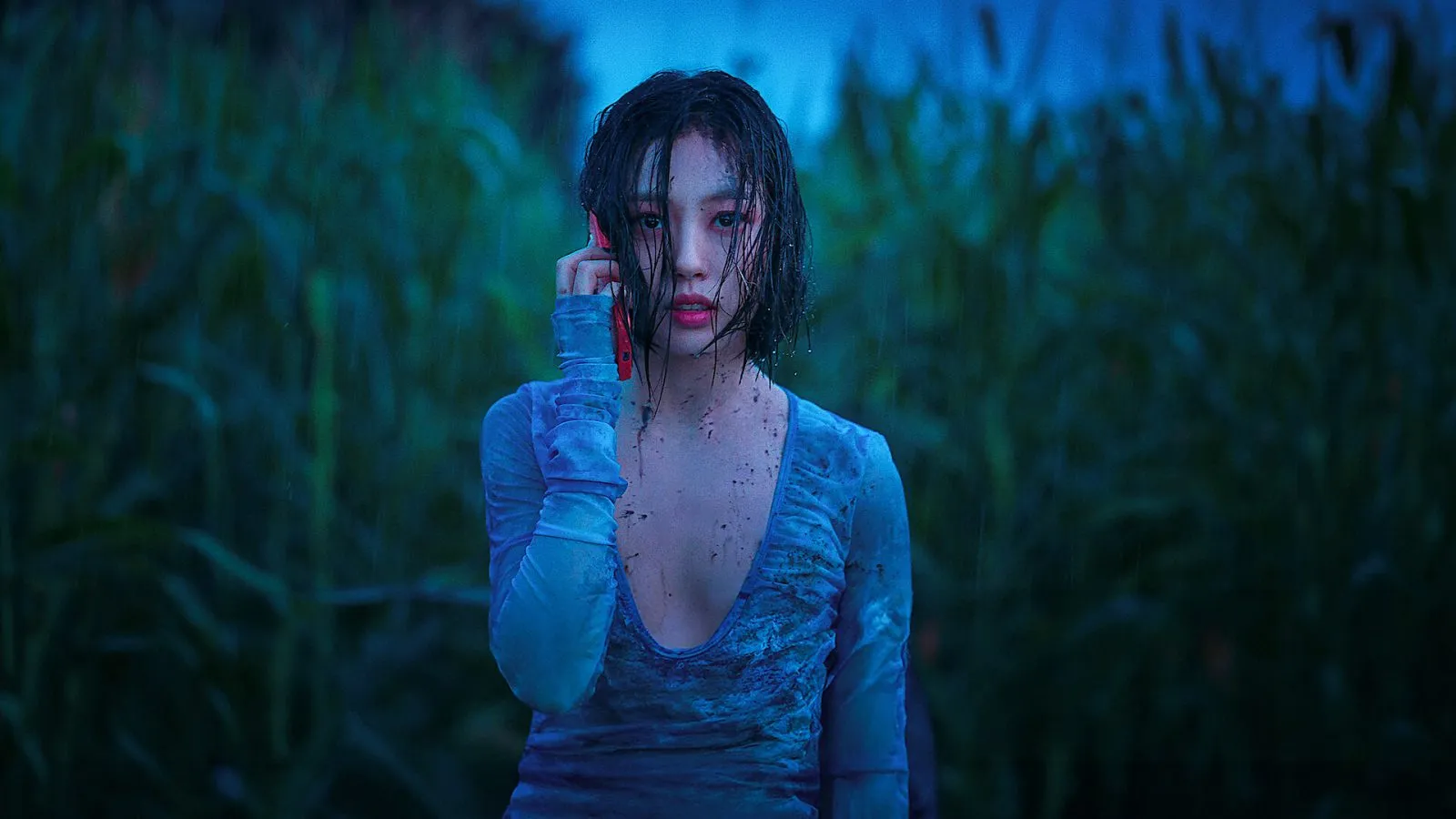Mo Wan-il’s The Frog opens like a familiar mystery: a hidden body unearthed, a cold case reignited, a retired detective dragged reluctantly back into the past. You might expect the usual beats—a whodunnit puzzle, a tormented sleuth, a series of neatly unfolding truths. What you get instead is far more unsettling.
The Frog doesn’t want to solve anything. It wants to haunt you with what never got solved in the first place.
Under its noir polish and sparse dialogue lies a philosophical provocation: that the worst tragedies in life don’t erupt from evil—they seep out from carelessness. That harm often arrives not from grand intentions, but from forgettable moments. What Western audiences might call the butterfly effect, this series translates into something quieter, crueler, and far more familiar: the way everyday indifference spirals into catastrophe.
The Butterfly Doesn’t Know What It’s Done
In chaos theory, the butterfly effect is the idea that a butterfly flapping its wings in Brazil might set off a tornado in Texas. In fiction, it’s often romanticized—an illustration of life’s interconnectedness. But in The Frog, it’s an indictment.
The butterfly is a tired detective named Go Sae-ha.
Years ago, he made a decision. Or rather, he didn’t. He let a case go. Filed it away. Did nothing. It wasn’t malicious. It was routine. Now, decades later, that file has grown teeth. A new body surfaces, and with it, the past he’s been avoiding.
This is The Frog’s central cruelty: that actions—or inactions—that felt small at the time can grow monstrous over time. The butterfly flapped its wings. The storm took years to arrive.
A World Built on Unnoticed Wounds
The genius of The Frog is that it never dramatizes its central thesis. It lets it fester. This isn’t a show about big moral acts. It’s about the quiet violence of forgetting. About how guilt isn’t always loud—it’s often silent, unacknowledged, and buried.
Ji-woo, the woman whose brother went missing years ago, isn’t looking for revenge. She’s looking for something closer to oxygen: the ability to breathe in a world that stopped making sense when her family was shattered. But what she finds is even worse—an entire ecosystem of people who were too tired, too distracted, or too numb to care.
In this way, The Frog becomes more than a thriller. It’s an anatomy of a society built on avoidance. A slow, aching dissection of how institutions—police, family, memory itself—collapse not under pressure, but under silence.
The Aesthetic of Moral Inertia
Visually, The Frog leans into its existential weight. The camera lingers in rooms where nothing is happening. Conversations trail off. Characters sit in silence for full minutes, not because they’re being mysterious, but because they genuinely don’t know what to say.
There are no expositional monologues here. No melodramatic confessions. Just people trying to function while quietly aware that something—maybe everything—has gone wrong.
This deliberate pacing has divided critics. Some have called it “exhausting,” “indulgent,” or “philosophical to a fault.” But this isn’t the kind of series that rewards impatience. The Frog demands discomfort. It demands that you sit with the long tail of unintended consequences, even when they offer no resolution.
Because real life rarely does.
Not a Mystery, But a Mirror
The longer you watch The Frog, the more it becomes clear: this is not a story about who committed the crime. It’s about who allowed it to happen. And who kept living afterward, never fully realizing what they were responsible for.
This subtle shift—from whodunnit to what did we do—is what makes the show so devastating. It’s not just asking the characters to reflect. It’s asking us.
The butterfly effect, as described in a recent Psychology Today article, isn’t just theoretical. It’s emotional. Tiny, unconscious choices can leave a mark on someone else’s life. A neglected call. A joke that went too far. A door you didn’t open.
Sae-ha didn’t set out to ruin anyone. He was just tired. Numb. Following protocol. And that—that—is what makes him terrifying. He could be any of us.
The Horror of Accidental Harm
What makes The Frog real isn’t its plot—it’s its plausibility.
So many stories about justice and guilt hinge on intent. But The Frog argues something else entirely: intent is overrated. Impact is what lingers.
And that’s the truth we’re often unwilling to face. That you don’t have to mean harm to cause it. That you don’t have to hate someone to be the reason their life unravels. That sometimes, the damage we do is simply the residue of not thinking too hard, not pausing long enough, not caring until it’s too late.
In a culture obsessed with heroes and villains, The Frog sits in the middle and asks: What if most of us are neither? What if we’re just people making small choices without thinking about who might be crushed by them?
Why You Should Watch It Anyway
There’s no dramatic payoff in The Frog. No big reveal. No satisfying comeuppance. What you get instead is a slow erosion of certainty. A creeping sense that we’re all part of a system of butterfly wings flapping in all directions—setting off storms that no one sees coming.
But maybe that’s the point. Maybe what The Frog is asking isn’t for answers, but for awareness.
Maybe it’s telling us to stop, for just a second, and ask:
What have I done without thinking?
Who might be living in the shadow of that moment?
And what would it mean to care before it’s too late?

Leave a Reply